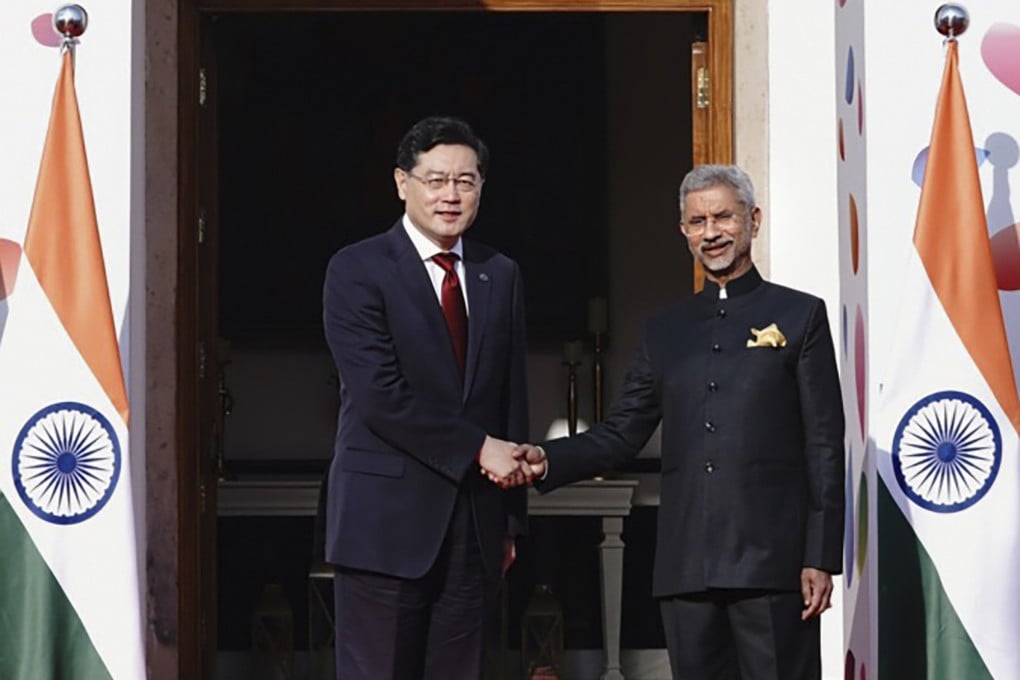Advertisement
Chinese, Indian foreign ministers hold bilateral talks as G20 meeting ends in disarray
- The engagement between two senior diplomats from neighbouring countries is of importance, given that they have been locked in a border stand-off since June 2020
- The visit, on the sidelines of the G20, comes at a time of geopolitical turmoil with heightened suspicions between Western democracies on the war in Ukraine
Reading Time:3 minutes
Why you can trust SCMP
13

China’s new foreign minister Qin Gang on Thursday held his first face-to-face talks with Indian counterpart S Jaishankar on the sidelines of a G20 summit, where deepening rifts among the world’s biggest economies over the Ukraine-Russia war were on display.
The 45-minute engagement between the two senior diplomats come as India and China continue to be locked in a border stand-off, a row that remains unresolved since June 2020 despite multiple discussions.
Jaishankar said the border dispute featured prominently in the talks.
Advertisement
“The thrust of the meeting was on the bilateral relationship and on the challenges in the relationship, especially on the peace and tranquility in the border areas,” he said at a media briefing after the meeting.

On the eve of Qin’s visit, Chinese foreign ministry spokeswoman Mao Ning had said China “valued” its ties with India. “China and India are ancient civilisations and both have more than one billion people,” she said. “A sound China-India relationship meets the fundamental interests of both countries and peoples.”
Advertisement
Advertisement
Select Voice
Choose your listening speed
Get through articles 2x faster
1.25x
250 WPM
Slow
Average
Fast
1.25x